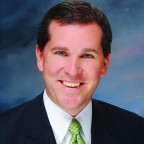
I’m a bit strange, I admit. Because of my position at the Peoria Area Convention and Visitors Bureau, I get excited by things that annoy most people. Sure, like any guy, I jump out of my seat screaming at sporting events and other adrenaline-inducing activities. But what I also find thrilling is when I drive by a local entertainment venue, restaurant, hotel or attraction and see it jammed full of people; especially if I know many of those folks are visiting from out of town. If the wait at a restaurant is an hour or more—great. If there are no hotel rooms available—awesome. If the lines at the box office or concession stands are long—good. If I can’t find a parking space for the life of me—outstanding. Those are good problems to have; and believe me, it’s much better this way than the other way around.
A lot of people don’t realize the power of tourism as a regional economic driver. When asked what churns the local economy, most people might say manufacturing, agriculture, healthcare or education, among others. Hardly anyone gives tourism the credit it is due. But the simple fact is tourism is a money-maker. It creates and sustains jobs (some 7.7 million across the U.S.) and can make or break local businesses.
Just ask my friend Tim Comfort, proprietor of Jim’s Steakhouse in downtown Peoria, about the power of tourism. Or better yet, try to get a seat at his restaurant on any Tuesday night. And if you look around, generally the only local residents you’ll see are business people entertaining clients—from out of town.
Ask my friend Dan Kouri, whose family owns the Lariat Steakhouse, about the power of compression caused by tourism. Compression happens when tourists are concentrated in one particular area, but create opportunities for other business in other areas. Dan once told me he used to hate the CVB because he felt like all it did was drive business downtown. But then he realized that’s a good thing, he told me, because if downtown is full of out-of-town visitors, local residents will come to his restaurant instead. That’s compression.
Ask local mayors how much sales, gas, hotel, restaurant and amusement tax revenue is generated by people visiting their towns. In 2007, hotel tax alone generated a combined $2.5 million in Peoria, East Peoria, Morton, Washington and Pekin. Hotel tax is paid almost exclusively by tourists, because people who live here don’t usually require hotel rooms.
According to the U.S. Travel Association, travel accounts for $740 billion in spending nationally and $115 billion in local tax revenue. One of every eight jobs in this country is created directly or indirectly by tourism. But here’s the killer stat: Each U.S. household would pay $988 more in taxes per year without the tourism industry.
The bottom line is…tourism helps our bottom line. Conventions, sporting events, corporate meetings, motor coach tours—they all bring people who are eager to buy stuff. Our stuff. iBi

